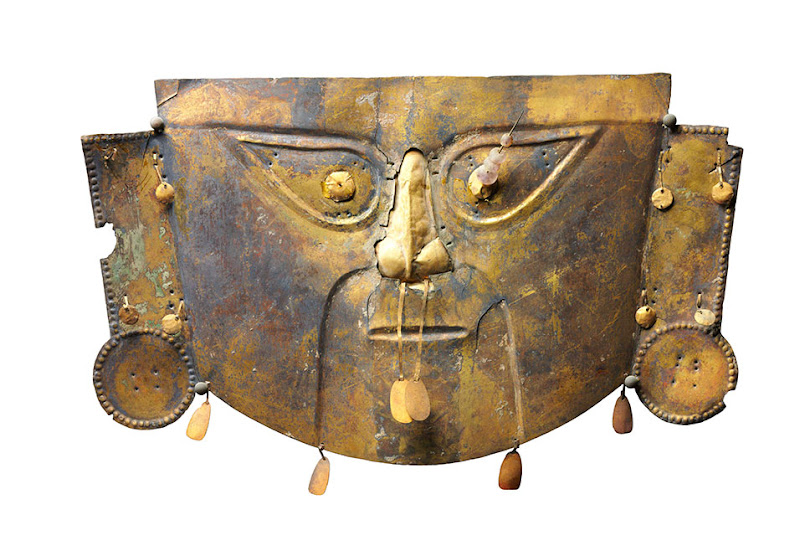A dazzling new exhibition at the Museo Archaeologico Nazionale entitled “The World That Wasn’t There” showcases a selection of pre-Columbian art from the prestigious Ligabue Collection. “When you enter this museum, you will enter a new world” said Andrea Pessina, Archaeological Superintendent of Tuscany.

There will be over 230 masterpieces on display, almost all of which have never previously been exhibited, and which are all are manifestations of Mesoamerica (most of Mexico, Guatemala, Belize and part of Honduras and El Salvador) and the Andes (from Panama to Colombia, Ecuador, Peru and Bolivia and as far as Chile and Argentina).
It is particularly significant that this exhibition is being held here, in Florence at the Palazzo della Crocetta, because it was a Florentine, Amerigo Vespucci, who first realised that the lands discovered by Christopher Columbus in 1492 were not Indian Islands, but a so-termed “Mundus Novus”, a new continent that was a few years later called “America” in his honour.
Furthermore, the Florentine Medici family were the first European rulers to preserve some of the artefacts obtained from the Indies in their private collections, whilst the Spanish melted everything made of precious metal to be used as coins. This exhibition, therefore, already has a strong link with the city.
Amongst the items on display include two awls made of jaguar bone, and Maya jade jewellery. The exhibition also includes some statues smiling or laughing, which are truly exceptional in Mesoamerican art, in which the human figures are usually impersonal or inexpressive.
What makes this exhibition all the more unique, is that only shortly after Columbus’ discovery, the Aztec and Inca cultures were annihilated by weapons and slavery, and the Taino were wiped out. This makes the objects on display all the more rare and all the more worth seeing.
This exhibition will serve as an homage to Giancarlo Ligabue (1931-2015), who was a palaeontologist, scholar of archaeology and anthropolgy, explorer and collector. Having personally taken part in excavations and explorations all over the world, Giancarlo Ligabue acquired a tremendous collection of artefacts from a variety of cultures.
This exhibition is promoted by the Ligabue Study and Research Centre, Venice, and the Soprintendenza per i Beni Archaeologici della Toscana - Museo Archaeologico Nazionale, and primarily sponsored by Ligabue SpA under the patronage of the Regione Toscana and the Comune di Firenze. It will be running until March 6 2016.
Author: Isabel Sawkins | Source: The Italian Insider [September 20, 2015]